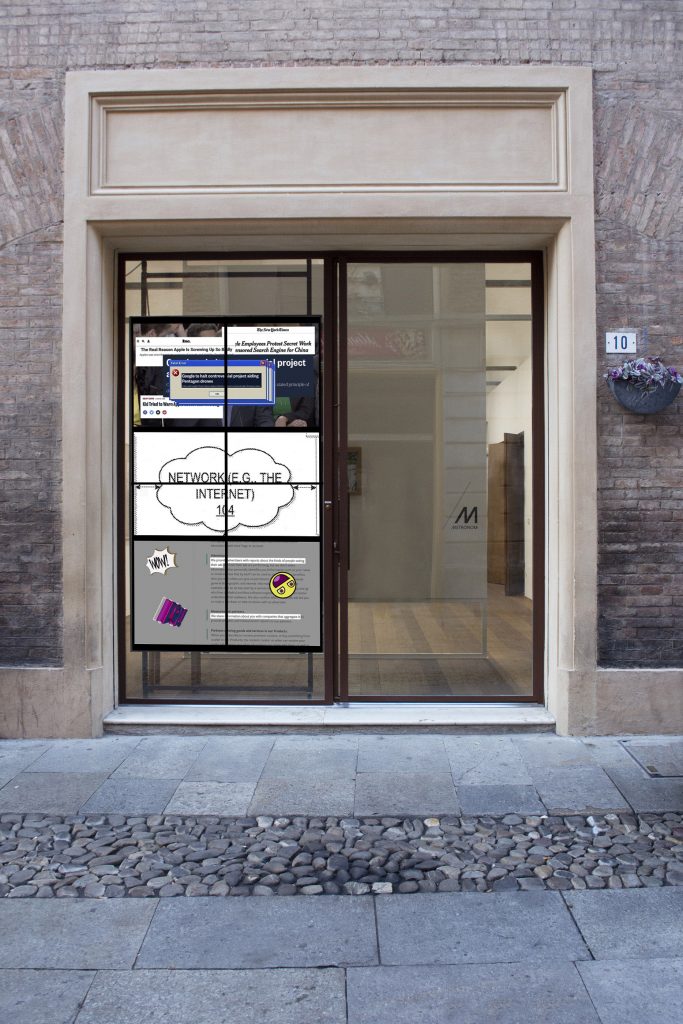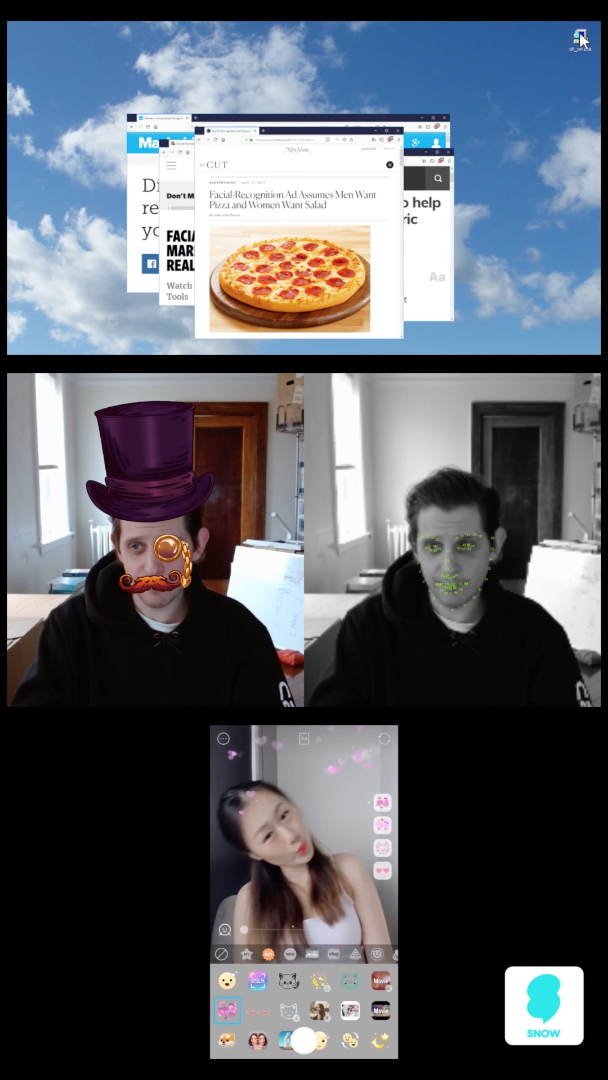STEALING UR FEELINGS | NOAH LEVENSON
Stealing Ur Feelings is the fourth video presented within the program RABBIT HOLE, the fourth edition of DIGITAL VIDEO WALL, an annual project structured in thematic chapters, aimed at promoting the dissemination and experimentation of digital art.
The fourth screening features the work of Noah Levenson, Stealing Ur Feelings (2019, VIDEO, MP4). Levenson is an American programmer and artist whose work particularly focuses on the study of artificial intelligence and the role AI has on everyday life, from facial recognition technologies to its use to target and monitor online consumer activities. Levenson’s latest research revolves around the problem of “decentralization,” or, as he puts it, “the challenge of efficiently connecting users to resources when they don’t quite know what they are looking for.” Noah Levenson’s field of research is decidedly heterogeneous: in addition to the project Stealing Ur Feelings, he has also worked in the video game industry, specifically with Nintendo, taking part in the development of collision dynamics for Mario Kart Live, made an interactive film titled Weird Box, which magically transforms any public Instagram account into the reason for a couple’s bizarre breakup, developed a fake app to poke fun at “bro culture,” as well as addressed technology at various levels for several news outlets and as a guest lecturer at universities such as NYU.
In 2019, Noah Levenson made Stealing Ur Feelings, described by the artist as «a deep learning-based AR experience that analyzes facial reactions to reveal the dangers of Big Tech’s emotional surveillance programs», with support from the Mozilla Foundation. The video work, which is about 6 minutes long, was awarded at the Tribeca Film Festival and exhibited at the Tate Modern, as well as being further discussed in several other contexts, such as at MIT and the Museum of the Moving Image. Levenson shows how companies are using increasingly refined technologies to decode users’ emotional states, what they feel disdain for or interest in, and use those indicators to create an emotional profile of people. Using technologies related to face tracking, combined with those related to eye tracking and mouth tracking to pick up microexpressions on our faces, it is possible to create databases dedicated to profiling users to figure out what content they are most interested in and train algorithms to feed users the same kind of information or entertainment content. A constant loop of the same content over and over. Companies such as Snapchat and Instagram, which make extensive use of facial filters to allow users to share their emotions and feelings, use such information and exploit (legally) technologies that are able to access users’ cameras (used to apply facial filters) to track their behaviors and interests. If filters such as the cat eyes, the beauty ones, as well as those that simulate our premature aging, seem on the surface to be a harmless and temporary amusement to share alternative versions of ourselves with followers and friends, they instead hide sophisticated tracking mechanisms for profiling our persona, which give Big Tech free rein to exploit sensitive data as they most desire. The question Stealing Ur Feelings asks is, are we really aware of how AI, algorithms and social media manage our data? Are we really in charge of the contents we choose to watch?
© Noah Levenson, Stealing Ur Feelings, 2019, video still, courtesy the artist
Noah Levenson | Stealing Ur Feelings
Digital Video Wall
Metronom | via Carteria 10 | 41121 Modena
April 11th – May 9th 2023 | h24

Noah Levenson, Stealing Ur Feelings, 2019, installation view at Digital Video Wall, Metronom IT

